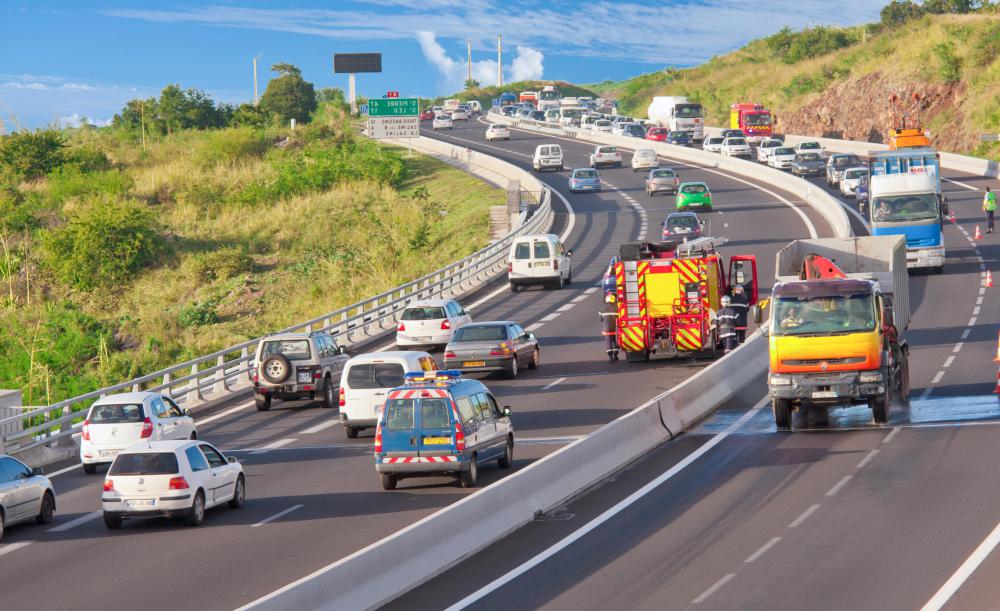At PracticalAdultInsights, we're committed to delivering accurate, trustworthy information. Our expert-authored content is rigorously fact-checked and sourced from credible authorities. Discover how we uphold the highest standards in providing you with reliable knowledge.
What does a Traffic Engineer do?
A traffic engineer is a transportation engineer who studies roads and highways and the habits of the people who use them. She uses this information to design transportation systems that best serve the most people in the most cost-effective manner. Analyzing traffic patterns and how they might evolve is an important part of her job.
To effectively analyze traffic patterns and make sound recommendations, a traffic engineer is commonly required to first gather information from several sources. She normally studies accident statistics and confers with police and traffic control personnel on the most dangerous streets and intersections. Options like speed bumps, directional signs and traffic signal adjustments are usually discussed as alternatives to reduce traffic and pedestrian mishaps.

She may also meet with traffic signal manufacturers and other engineers to review advancements in technology for improving traffic flow. Often timing lights in particular areas or at certain times of day can significantly improve traffic patterns and prevent bothersome backups during peak traffic hours. Accident rates can often be reduced through traffic light adjustments as well.

The physical conditions of roads and streets are also concerns addressed by a traffic engineer. She regularly examines existing roadways to assess their durability and applies her findings when planning future thoroughfares. If the materials or workmanship are found to be substandard, the traffic engineer is typically required to find possible alternatives. She is commonly expected to present her ideas and solutions to public works and transportation experts for review.

The focal point of a traffic engineer’s job is largely determined by the type of district in which she works. If she works for a state or regional agency, her main concerns are usually major roads that experience the most frequent and heaviest traffic. The safety and most economical upkeep of those highways is one of her main responsibilities.
If the engineer works for a city agency, she most likely spends considerable time studying urban parking and traffic congestion issues. Her proposed solutions to these problems are generally expected to be amenable to residents, visitors and governing agencies. Public transit matters are also a major concern for city traffic engineers.

A traffic engineer is regularly required to utilize computer aided design packages to study traffic patterns and determine how equipment modifications or road alterations could improve traffic conditions. She frequently creates visual presentations for meetings and seminars on traffic patterns and industry advancements. In addition to computer skills, a traffic engineer’s success largely depends on her ability to effectively communicate her concerns and solution proposals to a wide range of engineers, administrators and consultants.
The educational requirements for this position vary. Most jobs require a college degree in civil engineering, urban planning, or a related field. Professionals who later choose to use their degree to teach may need a master's or doctorate degree. Many engineers also attend seminars and training sessions required by their employer to expand their education.
AS FEATURED ON:
AS FEATURED ON:














Discuss this Article
Post your comments